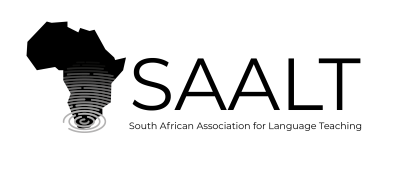The Academic Development approach to academic literacy in higher education South Africa: a disconnect between teaching and assessment.
DOI:
https://doi.org/10.56285/jltVol56iss2a5387Keywords:
academic literacy, language ability, generic, discipline-specific, higher education, applied linguisticsAbstract
Academic literacy, the ability to cope with the discourse demands of higher education, is believed to be a factor in the poor graduation rates among South African students. As a result, interventions to deal with low levels of this ability have been part of the broader effort by universities to boost student completion rates. In South Africa, two approaches to these interventions and the theories informing them have seen the light of day to date. In the main, these approaches and their theories have either been generic or discipline-specific in orientation, with the latter being currently the most embraced of the two. The present article is a case study of these two theorizations of academic literacy and aims to demonstrate that although the discipline-specific approach is the most favoured, a void exists currently regarding how its teaching might translate into assessment. This is the case especially when viewed from the way that this approach has been pursued in the field of Academic Development in post-apartheid South Africa. The article demonstrates, in other words, that while the discipline-specific approach, as pursued by the field of Academic Development, is convincing in terms of how it advocates for teaching, nothing equivalent has come from this field to balance the approach from the side of assessment.
Downloads
References
Bachman, L.F., & Palmer, A. S. 1996. Language testing in practice: Designing and developing useful language tests. Oxford: Oxford University Press.
Blanton, L.L. 1994. Discourse, artefacts and the Ozarks: Understanding academic literacy. Journal of Second Language Writing, 3 (1): 1-16. https://doi.org/10.1016/1060-3743(94)90002-7
Boughey, C. & McKenna. 2016. Academic literacies and the decontextualized learner. Critical Studies in Language Learning, 4(2): 1-10.
Carstens, A. 2012. Using literacy narratives to scaffold academic literacy in the Bachelor of Education: a pedagogical framework. Journal for Language Teaching, 46(2): 9-25. https://doi.org/10.4314/jlt.v46i2.1
Christie, F. 1985. Language education. Melbourne: Deakin University Press.
Council on Higher Education (CHE). 2007. Higher Education monitor: A case for improving teaching and learning in South African Higher Education. (HE Monitor 6). Pretoria. Council on Higher Education.
Council on Higher Education. 2010. Higher education monitor: Access and throughput in South African higher education: Three case studies. (HE Monitor 9). Pretoria: Council on Higher Education.
Council on Higher Education. 2013. A proposal for undergraduate curriculum reform in South Africa: The case a flexible curriculum structure. (Report of the Task Team on Undergraduate Curriculum Structure). Pretoria. Council on Higher Education.
Cliff, A. F. & Hanslo, M. 2009. The design and use of ‘alternate’ assessments of academic literacy as selection mechanisms in higher education. Southern African Linguistics and Applied Language Studies, 27(3): 265-276. https://doi.org/10.2989/SALALS.2009.27.3.5.939
Cliff, A. F., Yeld, N. & Hanslo M. 2003. Assessing the academic literacy skills of entry-level students, using the Placement Test in English for Educational Purposes (PTEEP). Bi-annual Conference of the European Association for Research in Learning and Instruction (EARLI), Padova, Italy.
Cliff, A. F. & Yeld, N. 2006. Test domains and constructs: Academic literacy. In Griesel, H. (ed.). Access and entry level benchmarks: The National Benchmark Tests project. Pretoria: Higher Education South Africa, pp 19-27.
Dörnyei, Z. 2007. Research methods in applied linguistics. Oxford: Oxford University Press.
Fulcher, G. 2010. Practical language testing. London: Hodder.
Gee, J. P. 2003. Opportunity to learn: A language-based perspective on assessment. Assessment in Education 10(1): 27-46. https://doi.org/10.1080/09695940301696
Halliday, M. 1978. Language as social semiotic. London: Edward Arnold.
Halliday, M. 1973. Explorations in the functions of language. London: Edward Arnold.
Jacobs, C. 2013. Academic literacies and the question of knowledge. Journal for Language Teaching 47(2): 127-139. https://doi.org/10.4314/jlt.v47i2.7
Lea, M. R. & Street, B. V. 2006. Student writing in higher education: An academic literacies approach. Studies in Higher Education 23(2): 157-172. https://doi.org/10.1080/03075079812331380364
Sebolai, K. 2014. Evaluating academic literacy teaching at a South African university: a case study of an academic literacy programme. Journal for Language Teaching, 48(1): 47-65. https://doi.org/10.4314/jlt.v48i1.3
Sebolai, K & Huff, L. 2015. Academic literacy curriculum renewal at a South African university: a case study. Journal for Language Teaching, 49(1): 333-351. https://doi.org/10.4314/jlt.v49i1.13
Spolsky, B. 1978. Introduction: Linguists and language testers. In B. Spolsky (Ed.), Papers in applied linguistics (Advances in Language Testing Series, No. 2, pp v-x). Arlington, VA: Center for Applied Linguistics.
Spolsky, B. 1995. Measured words. New York: Oxford University Press.
Stoynoff, S. & Chapelle, C. A. 2005. Esol tests and testing. Alexandria, Virginia: TESOL.
Van Dyk, T., & Weideman, A. 2004. Switching constructs: On the selection of an appropriate blueprint for academic literacy assessment. Journal for Language Teaching, 38 (1): 1-13. https://doi.org/10.4314/jlt.v38i1.6024
Van Dyk T., & Van de Poel, K. 2013. Towards a responsible agenda for academic literacy development: Considerations that will benefit students and society. Journal for Language Teaching, 47(2): 43-70. https://doi.org/10.4314/jlt.v47i2.3
Van Wyk, A. L, Greyling, W. J. 2008. Developing reading in a first-year academic literacy course. Stellenbosch Papers in Linguistics, 38: 205-219. https://doi.org/10.5774/38-0-30
Weideman, A. 2013. Academic literacy interventions: What are we not yet doing, or not yet doing right? Journal for Language Teaching, 47(2): 11-23. https://doi.org/10.4314/jlt.v47i2.1
Weideman, A. 2014. Innovation and reciprocity in applied linguistics. Literator, 35 (1): 1-10. https://doi.org/10.4102/lit.v35i1.1074
Weideman, A. 2019. Definition and design: aligning language interventions in education. Stellenbosch Papers in Linguistics Plus 56: 33-48. https://dx.doi.org/10.5842/56-0-782

